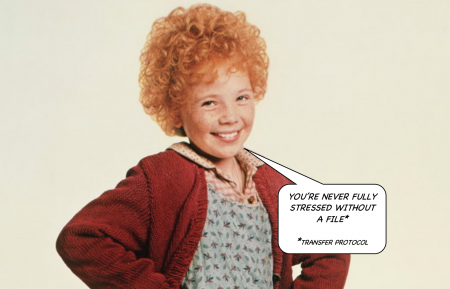When budget allows: Difference between revisions
Amwelladmin (talk | contribs) No edit summary |
Amwelladmin (talk | contribs) No edit summary |
||
| Line 8: | Line 8: | ||
<br> | <br> | ||
Tomorrow! Tomorrow! <br> | Tomorrow! Tomorrow! <br> | ||
I love ya! | I love ya, tomorrow! — <br> | ||
You’re always a day away. <br> | You’re always a day away. <br> | ||
:— “Tomorrow”, from ''Annie'' (1977)}} | :— “Tomorrow”, from ''Annie'' (1977)}} | ||
Revision as of 15:17, 12 October 2021

|
The sun’ll come out tomorrow
Bet your bottom dollar that tomorrow
There’ll be sun
Just thinkin’ about tomorrow
Clears away the cobwebs and the sorrow
’Til there’s none
Tomorrow! Tomorrow!
I love ya, tomorrow! —
You’re always a day away.
- — “Tomorrow”, from Annie (1977)
“When budget allows” is a mystical, hypothetical time in the future that, like Little Orphan Annie’s Tomorrow, is always there, dangling tantalisingly in the future, as each day turns, getting no nearer. It is the time when there will be budget, later, to do an urgent task for which there is no budget now.
Logicians will immediately sense a paradox. Their suspicions will be confirmed the minute they see the glint in middle management’s eye, for when it starts gabbling reverently about sorting this all out just as soon as budget allows — a time they can talk about with confidence and free of regret, while maintaining eye contact with a petitioning SME, assuring her that all will be well.
For if there is not enough interest to shell out for it now, how will it look by the time next month, next quarter, or next fiscal budgeting cycle rolls around?
It is rather like putting time quarter of an hour in the diary in four weeks time, to discuss something you want to know now.